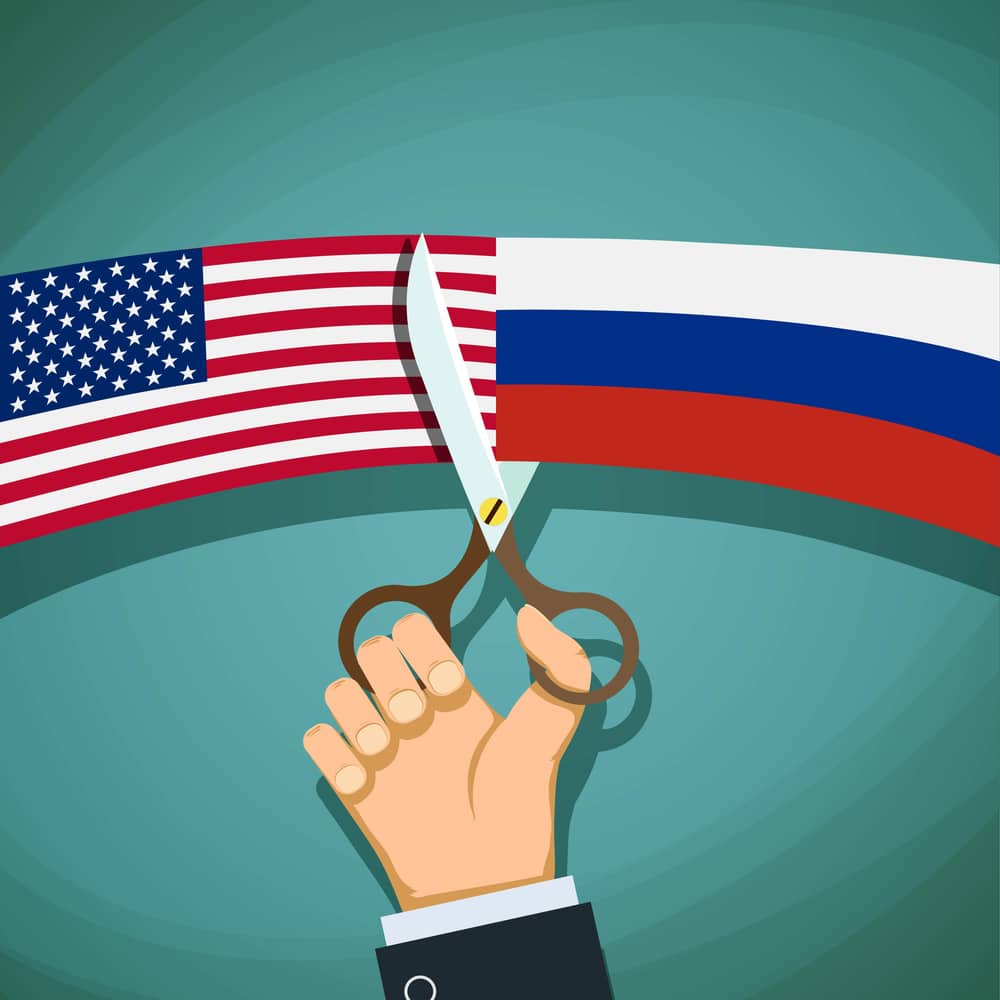There is growing speculation about how the Russia-Ukraine war might eventually end. Three competing scenarios are strong possibilities. The most likely outcome is a definitive Russian victory after a grinding, bloody struggle lasting several more years. As time drags on, Russia’s larger population and military will confer greater and greater advantages in the fighting, despite the lumbering, inefficient nature of the Kremlin’s forces.
The second most likely outcome is a frozen conflict roughly along the current battle lines. Fighting would end with an armistice rather than a formal peace treaty and reflect exhaustion on the part of both Ukraine and Russia. Such frozen conflicts already exist in places such as Kashmir, Cyprus, and most notably, Korea.
The least likely outcome would be a definitive victory by Ukraine, given Russia’s long-term logistical advantages. Unfortunately, both Washington and NATO have embraced that unrealistic objective, pledging continued Western military support and encouraging Kiev to stay the course, regardless of the mounting costs in blood and treasure to the Ukrainian people.
No matter how the war finally ends, the Biden administration and its NATO partners appear to have given surprisingly little consideration to what the West’s postwar relationship with Moscow will—or should—look like. Robert E. Hunter, a former U.S. Ambassador to NATO, touched on one important aspect in his recent article in Responsible Statecraft. He contended that there are more important issues than Ukraine’s NATO membership aspirations that need to be discussed at the 2023 NATO summit. “More consequential for the long term is an issue that won’t arise at Vilnius: what role Russia can play in European security after the war is over.”
Hunter points out the crucial reality that “unless Russia disintegrates, at some point in the future it will have to be dealt with as a revived great power, which under any leader will pursue what Russia considers to be its legitimate interests. (Already, a weakened Russia is challenging Western interests in the Middle East and elsewhere.) Russia’s European interests include not having a rival military alliance on its doorstep.” Unfortunately, “a consensus is rapidly forming in the United States, apparently shared in the Biden administration, that a new cold war confrontation with Russia is inevitable, whatever the risks, dangers, and longevity.”
Despite occasional conciliatory rhetoric, the United States has pursued a policy to constrain and humiliate Russia since the early years of Bill Clinton’s administration. The decision to expand NATO into Eastern Europe—with the ultimate objective of incorporating Ukraine into the alliance, despite Russia’s vehement objections and warnings that the West was crossing bright red lines threatening their core security interests—was the most provocative policy. But there were others. NATO’s military intervention in the Balkans against Russia’s longstanding ally, Serbia, was another. Terminating arms control agreements important to Moscow, especially the Intermediate-Range Nuclear Forces (INF) Treaty and the Open Skies Agreement, were other gestures of hostility and contempt toward Russia.
The extent of U.S. and NATO animosity surged in 2014 after Moscow’s seizure of Crimea in retaliation for the West’s meddling in Ukraine to help oust the country’s elected, pro-Russia president. Washington and its European allies imposed an array of economic sanctions against Russia. New, far more onerous, sanctions were imposed after Russia’s larger invasion in February 2022.
A full-fledged new cold war now exists between the West and Russia, with no end in sight. Early in the Russia-Ukraine conflict, Secretary of Defense Lloyd Austin admitted that Washington’s objective was to weaken Russia permanently. Other Biden administration officials, including the president himself, have indicated that there cannot be even a limited rapprochement as long as Vladimir Putin remains in power.
However, there is little indication that either the United States or the rabidly anti-Russia governments in NATO’s East European members would relent even if new political leadership emerged in the Kremlin. Instead, as Hunter notes, a hardline, uncompromising posture toward Russia seems to be increasingly entrenched. It is difficult to find even hints, much less explicit statements, coming from NATO capitals about which sanctions would be lifted and when, if a peace accord ending the Russia-Ukraine war was signed. A frozen conflict makes a substantial, prompt lifting of sanctions even less likely.
Even if the Biden administration wanted to change course and adopt a more conciliatory strategy toward Moscow, it is doubtful that hardliners in Congress or in several NATO countries would accept such a move. Instead, they seem inclined to push Washington to adopt a course more akin to the policies U.S. leaders have pursued for decades toward such rogue states as North Korea, Cuba, and Iran.
But trying to isolate Russia in such a fashion would be even more futile and potentially disastrous. North Korea and Cuba are small, impoverished countries. Even Iran is a mid-sized power with limited clout. Russia, however, is a major global economic player and possesses the world’s largest nuclear arsenal. NATO’s attempt to enlist the rest of the world to isolate Russia and aid Ukraine has faltered badly. Seeking global unity for such a hostile approach once the Ukraine war ends would be greeted with derision throughout the “Global South.”
Robert Hunter is correct that Russia is an essential player in any stable European security system and must be re-integrated once the war ends. However, Russia’s importance is even greater than what Hunter describes. The country is a crucial factor in the global economic and security systems. Pursuing an extended cold war against Moscow is impractical and potentially disastrous. The Biden administration needs to make a major course adjustment for a post-Ukraine war era.

































